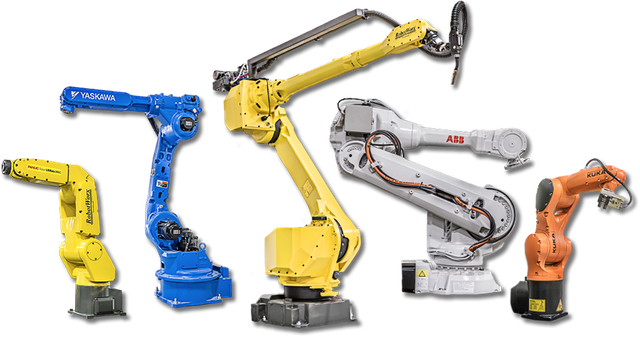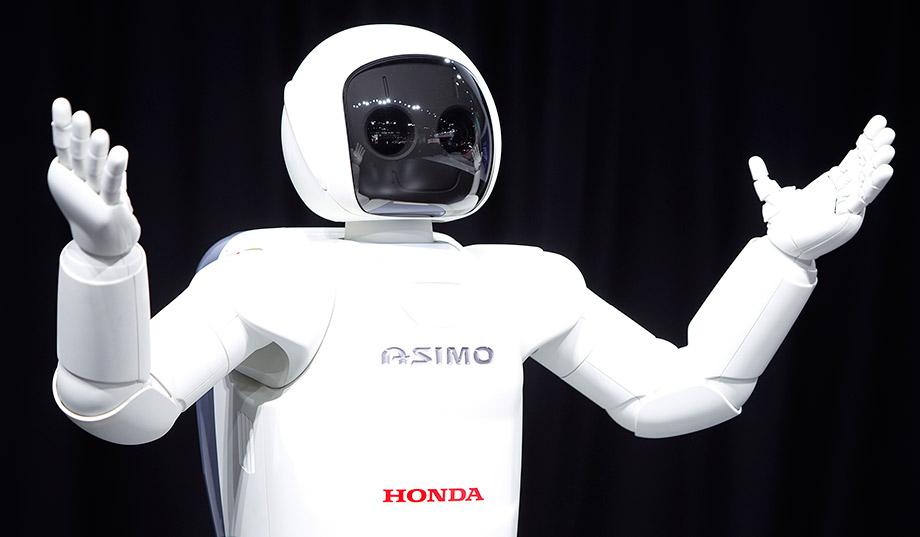Robots Cost Jobs - but less than imagined
Robots cost jobs - but less than imagined.
If you want to get compensation for a delayed flight, you may not have to deal with a human lawyer today. In a simple case, an American company automatically estimates whether a claim will succeed. The customer receives compensation within minutes. Everything is done by a computer, a person has nothing to do with the decision.

Since computers have beaten humans in a game of chess, they are taking more and more from the human domain. In the meantime the man is also subject to the Asian board game "Go". When working, call center agents take over computer tasks: they listen to the caller's problems, connect to the right contact, and solve simple cases. Even lawyers are no longer safe in their jobs; The aforementioned airline company is just one example. The fear is great that computers, artificial intelligence and robots will destroy many jobs in the coming decades. The dangers are immeasurable.

Four years ago, a study conducted by the Oxford scientists Carl Benedikt Frey and Michael Osborne caused a sensation: they prophesied that almost every second American workplace was at risk. For 700 professions, the researchers suggested probabilities that the profession would be automated. Other studies have shown that 57 per cent of jobs are at risk. Hardly anybody noticed that the core of the study - between much mathematics - was simple finger-pointing, which activities could be replaced by the computer and which couldn't.
A researcher at the Center for European Economic Research calculated the study of Osborne and Frey from Germany and came to 42 per cent vulnerable jobs. For the OECD, a very similar team, but a little bit different, reckoned with a very different result: In Germany, only 12 percent of the jobs were threatened by automation, they said. In the end, the impression was that many things can be estimated. No one knows what happens.
A team has calculated the effect of robots
Now, however, someone actually counted, and the result does not look catastrophic. The respected economist Daron Acemoglu from the Massachusetts Institute of Technology recounted together with Pascual Restrepo from Yale, where the robots stand in America and what that means for the labor market. To this end, they divided the United States into geographical regions within which many people live and work ("pendulum zones"). Then they looked at 19 different industries from 1990 to 2007.
The result was clear, but not disastrous. In the regions with a particularly high level of robotics employment and wages declined compared to the rest of the Americas, but they were limited. When a new robot started working on 1,000 workers in a region, wages rose by 0.7 per cent slower than in the rest of the country. And jobs were lost. "For robots, 6.2 workers lose their jobs," the researchers wrote. This does not mean that people are released. Job losses can also occur as a result of fluctuation, or because new products are built from the start by the robot.
The country is lagging behind Europe in the automation of its industries. But even if America were now investing heavily in robots, this would only mean that wages will grow by 2.6 percent slower over the next ten years than without robots; Roughly two percent of Americans would work less.
Saving work also has its advantages
The researchers are not only negating the loss of jobs. Saving work also has its advantages. It was only last year that they showed that robots are used often in those countries where society is rapidly aging. They help to stabilize the economic output, while the labor force emanates from the countries.

More importantly, the consideration of Acemoglu and Restrepo is narrowly limited. An important aspect is missing: robots are used because they make the production cheaper. Where they work, money remains left, either with the factory owner or with the customer. This money can then flow into other products and pay for new jobs, especially as some people start without work new companies and have business ideas that also create jobs.
The researchers can only say at the moment what this effect brings within the United States. Taking into account the fact that money saved elsewhere in the country has created jobs again, the effects are halved: for two jobs lost in the United States because of robots, a new job is emerging in another industry. But the Americans are not only spending their savings in their own country, they also import goods from Europe and China. They do not know how many jobs America's robots bring abroad, nor do they know how many jobs are created in America because of Europe's robots. It is quite possible that a new one will emerge elsewhere for each lost job.
The researchers do not say, therefore, whether mankind is going out of work in 40 years. But they give an upper limit to the estimate of how many people are negatively affected in the meantime.
nice work :)
Thank you.
This post recieved an upvote from minnowpond. If you would like to recieve upvotes from minnowpond on all your posts, simply FOLLOW @minnowpond
Thank you.
Congratulations @autonomysystem! You have completed some achievement on Steemit and have been rewarded with new badge(s) :
Click on any badge to view your own Board of Honor on SteemitBoard.
For more information about SteemitBoard, click here
If you no longer want to receive notifications, reply to this comment with the word
STOPCongratulations! This post has been upvoted from the communal account, @minnowsupport, by cool from the Minnow Support Project. It's a witness project run by aggroed, ausbitbank, teamsteem, theprophet0, someguy123, neoxian, followbtcnews/crimsonclad, and netuoso. The goal is to help Steemit grow by supporting Minnows and creating a social network. Please find us in the Peace, Abundance, and Liberty Network (PALnet) Discord Channel. It's a completely public and open space to all members of the Steemit community who voluntarily choose to be there.